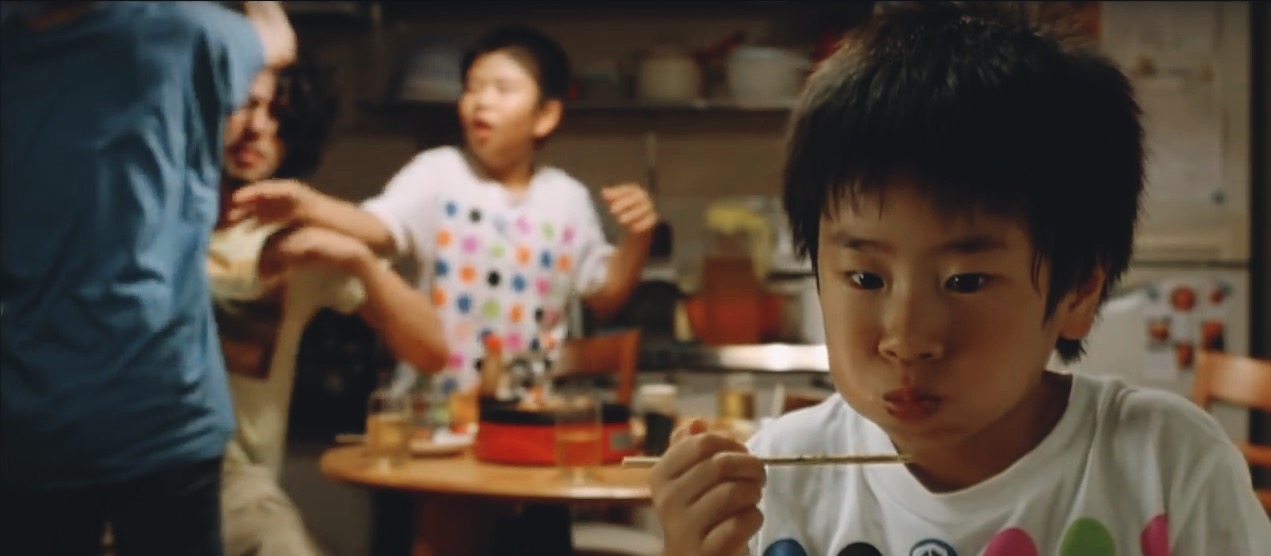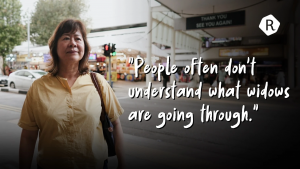My parents used to be assholes. Thankfully, they got divorced.
When your childhood is spent navigating the minefield of slamming doors, deafening silences, and piercing words, trust me, you would also struggle to recall a happy memory involving both parents.
Perhaps that’s why I’m fiercely protective of this one: the day they shared a plate of hokkien mee after a family excursion to East Coast Park.
All I have are snapshots.
My father piling an overflowing heap of yellow noodles and squid onto my mother’s plate; my mother’s unadulterated laughter as she peeled the prawns; both my adult parents behaving like teenagers in love. I got sambal on my clothes that day, and they didn’t even notice.
For a few hours at least, the eggshells I’d learnt to walk on didn’t crack.
The next week, they signed the papers.
People talk about adulthood like it’s dictated by hitting a specific age. Truth is, you grow up in the split second it takes for everything you once thought unquestionable to fall apart.
The day I became an adult, I was only 9.
“You don’t know how bad I’ve had it,” she said quietly, one sentence waging full rebellion against everything life has dealt her.
I suppose she was right. I rarely miss the sour tang of lime on warm hokkien mee or the sound of my parents laughing together anymore. I even milk this so-called ‘misfortune’ for what it’s worth, like how I’m turning it into an article.
The trick is to realise what hurts, and learn to live without. Many just never quite figure out how to do it.
That evening, I wanted to wipe away the carbonara sauce that had smudged on my mother’s cheek. Instead, I stared hard at my plate of sticky pasta gone cold, unnerved by her almost unabashed inability to move on and her reluctance to let anyone else do so either. Sometimes, I’m convinced her ex-husband is cut from the same cloth.
I grew to understand my father’s love through home-cooked weekend dinners. There was fragrant chicken rice, experimental mee goreng, and cute attempts at making sushi. Every Asian child knows that “Eat more” means “I love you”. With my father, I knew it also meant “I wish I could spend more time with my daughters”.
So I felt guilty when I first started spending Friday and Saturday nights on Tinder dates. Slowly, I grew immune – I was 25, my love life took precedence.
Then one day, he texted: “Not eating dinner at my place again this weekend?”
It took a whole day for my heart to stop hurting.
One night, I was transfixed by the hot stove after my father removed a bubbling pot of Maggi Mee. The steaming bowl of runny yolk, sausage, and crabstick, wasn’t enough to distract me from reaching out to touch the stove.
The sting was so sudden and sharp that the tears came without warning. I ran the burn under cold water and immediately felt better.
Later on, whenever something hurt, I would spend hours in the shower and come out a brand new person, the top layer of skin having peeled away. After my father moved out, I took multiple showers a day.
In a few years, I would grow comfortable with telling friends that he no longer lived with me, just like how easily I gleefully devoured a bowl of soggy noodles, minutes after having my finger neatly wrapped in a bandage.
But memory works like this: one day, you are in a supermarket when you’re blindsided by the smell of sushi. It reminds you of your father and suddenly, you’re 9 again, wondering how home could feel noticeably emptier with just one less person.
Then it’s 4pm and you’re eating Milo powder by the spoonful when you choke on the recollection of your mother shouting at you for making a mess.
And every time you savour the cheap aftertaste of a 7-11 Slurpee, you remember the night you broke up with that super nice ex-boyfriend because you couldn’t handle the commitment. Maybe you are your father’s daughter, after all.
Some of our most complex relationships are built around food. In a country where every corner is another food stall, this means unwillingly but undeniably revisiting old memories.
There are the pleasant and the poignant. And then there are the ones that unexpectedly reappear, like getting sambal stains on a white shirt, leaving you with a glaring reminder of what you wish to forget.






